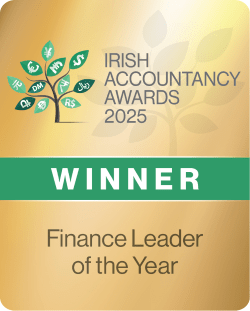One of the biggest challenges small businesses face is finding the money they need to expand and grow. In order to hire new staff, promote the business and purchase new equipment, a company needs seed capital. Unfortunately, very few investors are willing to bet on new businesses, especially on entrepreneurs without a lengthy track record.
According to Statista, there are 269 708 SMEs operating in Ireland, of which 246 153 are considered micro-sized enterprises, employing less than ten people. As such, it’s very important to help early-stage companies raise seed capital to grow their business. If you are a sole trader, investor or planning to start a small business, there may be a government initiative that can support you.

Which Initiatives Are Available To Help Private Investors and Small Companies Raise Money?
There are several tax reliefs in corporate trade that can attract investors or provide seed capital to grow and expand your new business in Ireland, and the UK government also offers generous tax breaks for British branches. If you invest in qualifying companies, you may be able to claim income tax relief on the amount invested. In this article, we’ll look at three schemes:
- Employment Investment Incentive (EII)
- Start-up Capital Incentive (SCI)
- Start-Up Relief For Entrepreneurs (SURE)
We’ll also compare these schemes to the Enterprise investment scheme (EIS) and Seed enterprise investment scheme (SEIS) offered by the UK government.
1. Employment Investment Incentive (EII)
Venture capitalists aren’t always eager to invest in early-stage businesses, which is why the government is eager to encourage investment from all sources. The EII is a tax relief designed to encourage investment from individuals. It incentivises equity investment in trading companies by offering a tax break to potential investors that meet certain conditions. Shares must be held for at least four years, and investors and their families may not hold any capital in the company. Investors could claim maximum tax relief of €150,000 in a year up to 2019 and €500,000 in respect of the years after 2019, with shares held for a maximum of seven years, or €250,000 if those shares were held for a minimum of four years only. This may make it easier for young companies to raise funds and gain financial support from individuals.
The scheme provides for tax relief of up to 40% in certain trades. There is a €15m lifetime limit and a €5m limit on a rolling 12-month period, ending with the share issue, on the amount that a company can raise.
2. Start-up Capital Incentive (SCI)
The SCI was designed specifically for start-up companies to raise funds. This unique tax relief is available to family members of existing shareholders. There are a few conditions, mainly that the company should be a brand new venture and that none of the shareholders can carry on a similar venture. There is a € 500,000 lifetime limit that a qualifying company can raise under the incentive. The main difference between the SCI and EII is that the EII scheme is not available for investors whose associates have an interest in the capital of the company; SCI is available for those associates.
3. Start-up Relief for Entrepreneurs
Entrepreneurs that are looking for venture capital but can’t seem to raise finance through conventional means should definitely investigate the possibility of using the SURE scheme. Unlike the previous two tax reliefs, SURE provides a tax refund on income tax paid in previous years. If you are currently employed, unemployed or have been made redundant recently and want to start your own business, you can apply for the scheme (providing that the company’s trade, age, and investment needs match the requirements).
The general conditions of SURE are that you must establish a new business, have mainly earned a PAYE income in the previous four years, and you must take up full-time employment in the new company as either a director or an employee. You need to invest cash in the new business by purchasing new shares and keeping those shares for at least four years.

Other Tax Relief Schemes
Qualifying Irish businesses can apply for the Enterprise Investment Scheme (EIS) or Seed Enterprise Investment Scheme (SEIS) Advance Assurance to make their business more attractive to UK investors. If your business is raising less than £150,000, is innovative, has a UK branch, employs less than 25 people and has been trading for less than two years, you may qualify for the Seed enterprise investment scheme. Businesses with larger rounds trading for less than seven years may qualify for the Enterprise investment scheme (EIS).
Both schemes are designed to make startups less risky for potential investors by enabling them to claim tax relief. EIS offers income tax relief of up to 30%, and SEIS income tax relief may be as high as 50%. Both schemes are eligible for loss relief, capital gains tax exemption, and inheritance tax relief, which is why they’ve proven to be among the most successful venture capital schemes in the UK.
Irish businesses that want to take advantage of these schemes must apply to HMRC for Advance assurance to confirm to investors that your business is eligible for SEIS or EIS. Businesses must have a brick-and-mortar location in either Northern Ireland or Great Britain to qualify, or if a representative of the company authorised to sign contracts is based in either location. Businesses must register at Companies House in the UK and apply for a UTR number from the HMRC.
A SEIS-eligible business can raise up to £100,000 per year through the scheme, whereas EIS-eligible companies can accept funding from individual and corporate investors for up to £1 million per tax year. Corporate investors do not qualify for tax relief but will receive shares on the same terms.
Final Thoughts
Most entrepreneurs and young companies will say that finding the funding they need to grow their businesses is their biggest challenge. By offering tax relief to investors or accessing a tax refund of your own, you can raise the money you need to take your business to new and exciting heights.












